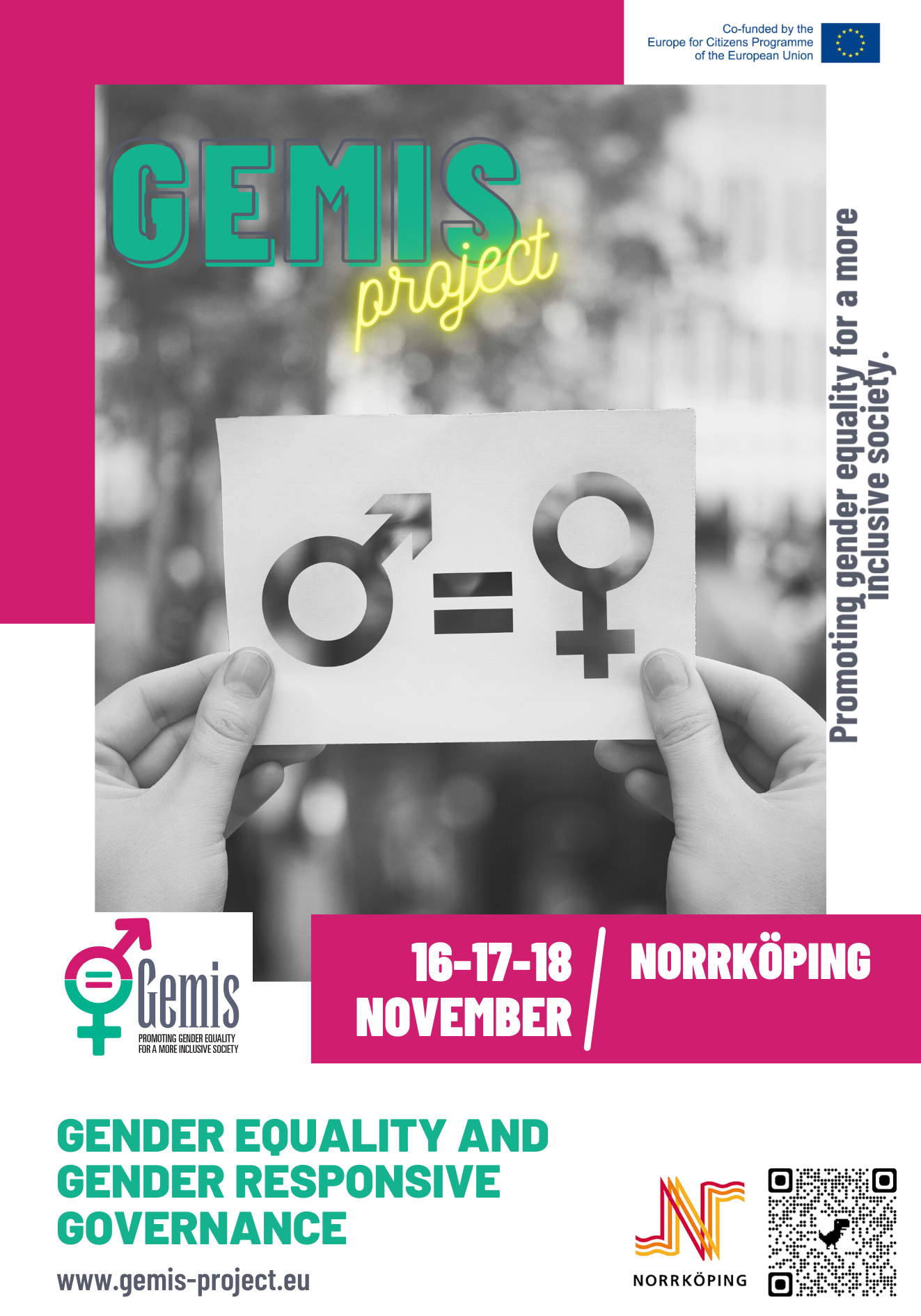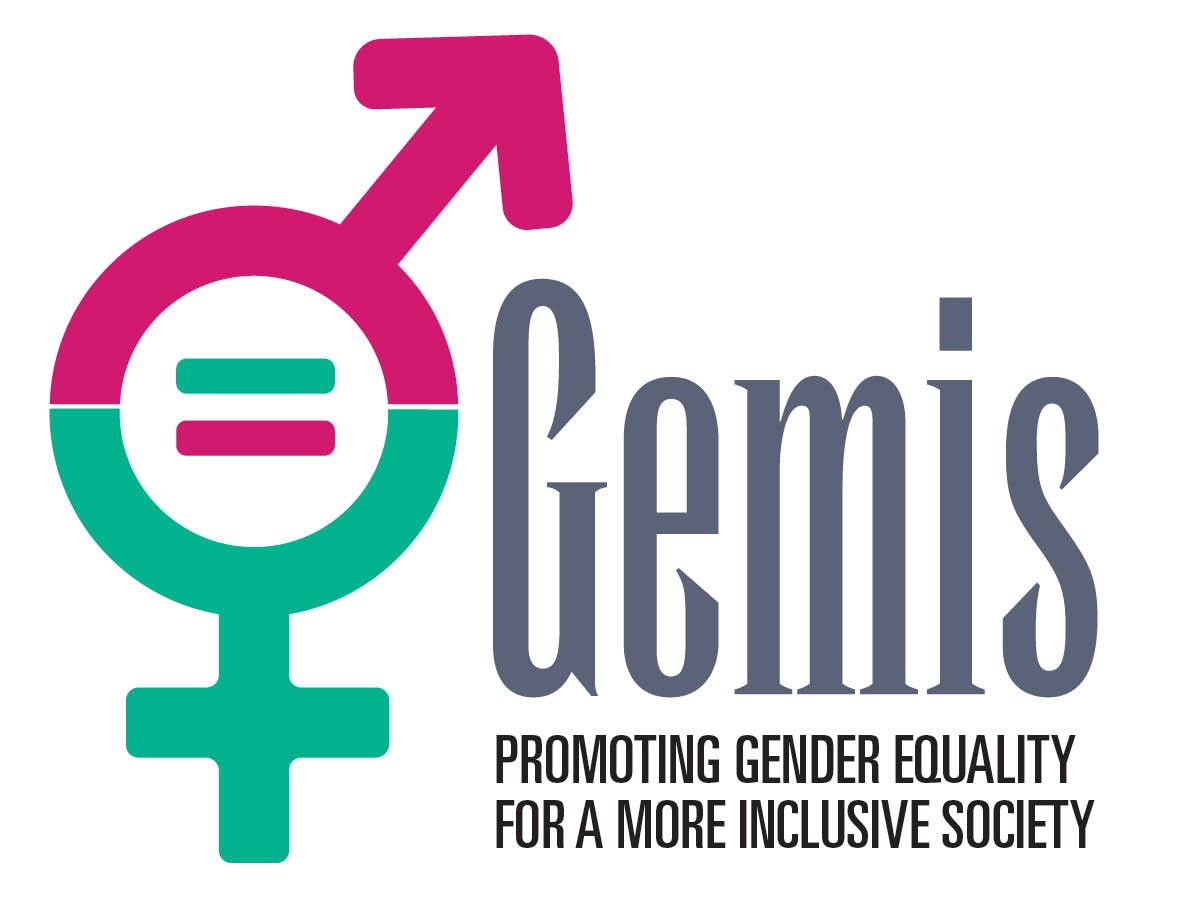Gender equality and gender responsive governance
The first GEMIS seminar was a success!
Location: Norrköping (in presence and online). Due to the persistence of the Covid 19 pandemic it was decided not to gather a large crowd in presence, and to allow a part of the participants to follow the event online.
Participation: the event involved 75 citizens in total.
In presence 34 participants: 3 participants from Gender Studies (Czech Republic), 3 from the Municipality of Santo Tirso (Portugal),3 participants from the Municipality of Piotrków Trybunalski (Poland), 2 participants from Esslingen (Germany), 2 participants from Vienne(France) 6 participants from the Municipality of Parma and SERN (Italy) and 15 participants from the Municipality of Norrköping (Sweden).
Online 41 participants: 36 participants from Sweden, 1 participant from France, 3 participants from Italy, 1 from Czech Republic.
Date: from 16/11/2021 to 18/11/2021
The aim of the 3-day Seminar “ Gender equality and Gender responsive Governance” was to debate about the EU regulation and strategies to end gender inequalities and its application at national level in Sweden, to increase knowledge and awareness on gender inequalities in vulnerable groups (immigrate women) and best practices to counter them. The participants of the Seminar had the opportunity to reflect on the good practices of gender responsive governance implemented internally in the Municipality of Norrköping and the good practices implemented towards citizens.
Have a look at some photos taken during our first seminar!

Registration
Programme
- Speaker of the Riksdag Andreas Norlén: Democracy in a historical perspective, 100 years of universal suffrage, then, now and in the future.
- Governor Carl Fredrik Graf: How does the County Administrative Board of Östergötland work with gender equality?
- Anne-Charlott Callerstig, senior researcher at Örebro University: How equal is Sweden?
- Municipal councilor Kikki Liljeblad: How does the municipality of Norrköping work with gender equality?
- A local example - the work with Norrköping Municipality's traffic strategy.
- Pause
- MEP Abir Al-Sahlani: How does the EU work with gender equality?
- Emil Broberg, Vice Chairman of the CEMR Committee for Gender Equality: Gender Equality in the Decision-Making Process.
- Aksel Sundström, senior lecturer at the University of Gothenburg: Gender equality at the local level? Women's representation at the local level in Europe.
Speakers

Andreas Norlén
Speaker of the Swedish Parliament

Abir Al-Sahlani
MEP

Carl Fredrik Graf
Governor of Östergötland

Kikki Liljeblad
Municipal Councilor

Emil Broberg
CEMR Committee on Gender Equality

Anne-Charlott Callerstig
Gender scientists and political scientists at the Center for Feminist Social Studies (CFS) at Örebro University.

Aksel Sundström
Lecturer at the University of Gothenburg

















